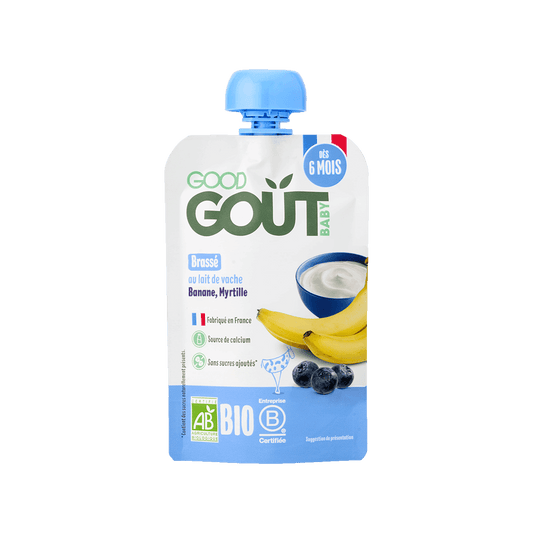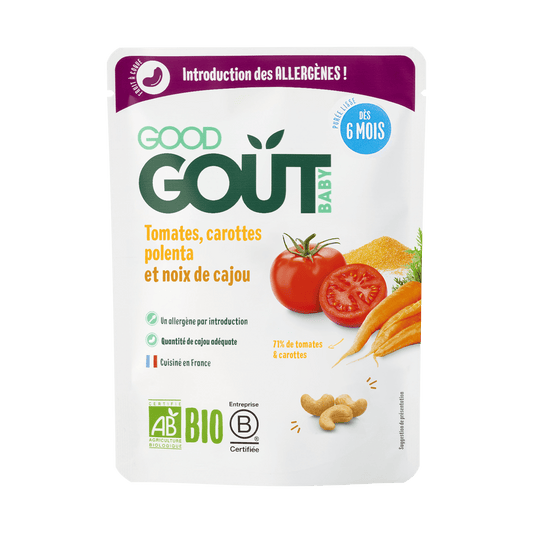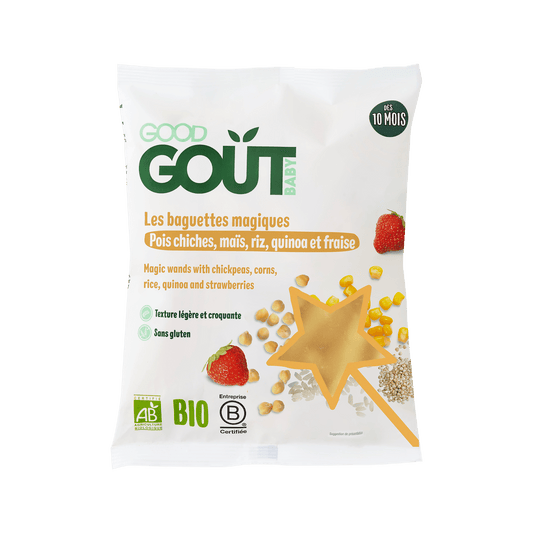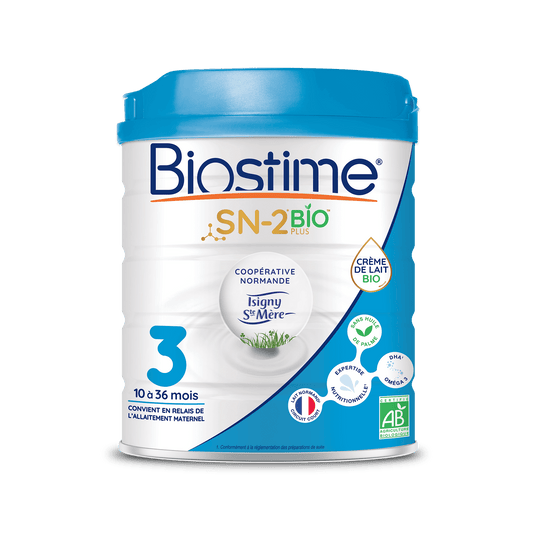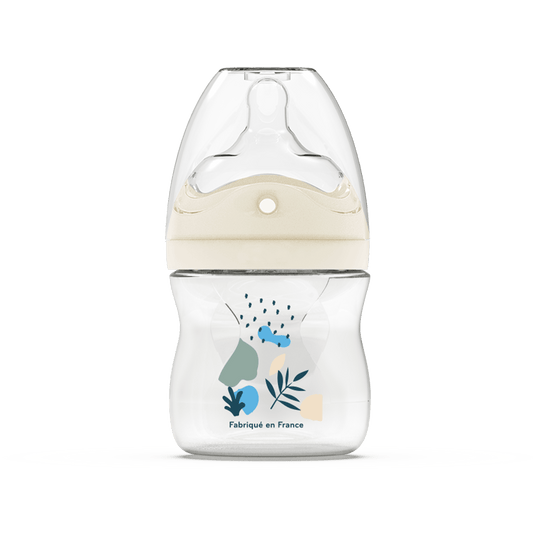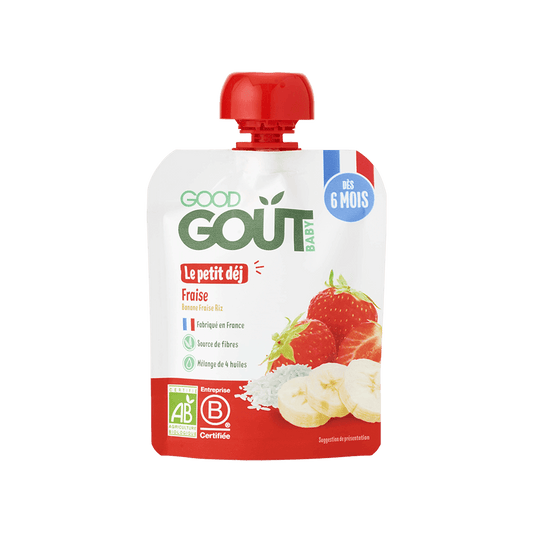What if we gave our breastfeeding a little boost? Breastfeeding herbal teas allow you to stimulate lactation in a 100% natural way and do your baby good at the same time. Enough talk, let's tell you more about this ally of mothers!
Breastfeeding herbal tea, what is it?
Breastfeeding tea is made from plants called "galactagogues," meaning they promote the secretion of your milk. This tea can be useful, for example, when:
- The mother is very tired or stressed, which can slow down milk production.
- Babies have growth spurts: they want to breastfeed more frequently. Around 3 weeks, 6 weeks, 3 and 6 months, it's time to breastfeed!
- The mother (re)takes hormonal contraceptives, which can sometimes reduce milk production.
Note that after a certain time after giving birth, the level of prolactin (yes, you know, that famous hormone that triggers lactation!) drops and unless the mother is stimulated regularly and effectively enough, milk production decreases. Let's not lie to ourselves, it's not always easy to be stimulated all day long, especially when we return to work and other activities that reduce breastfeeding. Hence the usefulness of breastfeeding herbal tea, to give a little boost to new mothers!
It kills two birds with one stone, it also keeps your baby well hydrated and that's capital!
Good to know
There are two types of breastfeeding teas: the first is used to boost your lactation, while the second is used to relieve your little one's colic.
What do you find in breastfeeding herbal tea?
Most breastfeeding herbal teas contain[1]:
- Fenugreek: beyond its stimulating effect on breast milk, it is said to have several postpartum health benefits, such as maintaining normal blood glucose levels or regulating fat metabolism[2]. Great!
- Nettle: It stimulates milk production and enriches its composition. Its added bonus? It offers a nice energy boost to mothers thanks to its invigorating properties. We say yes!
- Verbena: its calming effect reduces fatigue and stress, which are sometimes responsible for a lack of milk.
- Cumin: It activates milk production while soothing our minor digestive issues (and we thank it for it). Don't hesitate to incorporate it into your dishes in addition to your herbal teas! You'll see, it's delicious...
And many others like shatavari, green anise or even gooseberry!
A word of advice: choose organic to avoid GMOs (Genetically Modified Organisms), which are not ideal for your little one.
What is the recommended dose for my breastfeeding herbal tea?
Three cups of herbal tea per day are recommended to see the positive effects on your lactation[3]. We can already see you coming: no, milk is not necessarily stimulated overnight! For some mothers, this is the case, and for others, it will be necessary to wait a few days. Patience will be the key word…
Our little tip
Cover your herbal tea with a lid while brewing to fully activate its active ingredients. This prevents them from evaporating!
Making your own breastfeeding tea: yes, but with caution
Do you prefer a DIY (Do It Yourself) herbal tea? Why not, but only if you follow certain guidelines.
- Avoid certain plants like sage, peppermint or parsley which can, on the contrary, reduce your milk production[4]. On the other hand, they can be effective if you want to reduce your lactation (we'll take note!).
- For fenugreek herbal teas, be careful not to exceed 1/4 teaspoon of seeds, to be infused for 10 minutes in 225 ml of water 3 times a day[5]. This plant contains steroids which, beyond this dose, can be harmful to your little one.
If in doubt, please consult a healthcare professional.
Be aware that certain foods also promote lactation, such as oats (their iron content stimulates milk production), fennel[6] (which boosts our prolactin production), and also water! Yes, 87% of breast milk contains water[7]. We aim for a minimum of 2 liters per day while breastfeeding.
Psst, tell us your breastfeeding tips: we'd love to hear your little tips!
Tell us about your experience!
Have you ever tried breastfeeding herbal teas? If so, did they boost your lactation? Would you like to know more about these natural remedies? Share your stories and ask us your questions at contact@biostime.fr or by DM on Instagram @biostime.fr . See you soon!
Important notice: Breast milk is the ideal and natural food for infants.
[1] Source: “Breastfeeding herbal tea to stimulate milk production” jollymama.fr, January 9, 2019 https://jollymama.fr/guide/la-tisane-dallaitement-pour-stimuler-la-production-de-lait/
[2] Source: “Breastfeeding herbal tea to stimulate milk production”, jollymama, September 1, 2019 https://jollymama.fr/guide/la-tisane-dallaitement-pour-stimuler-la-production-de-lait/
[3] Source: “Breastfeeding herbal tea: is it really effective?”, magicmaman, January 11, 2021 https://www.magicmaman.com/tisane-allaitement-est-ce-vraiment-efficace,3666962.asp
[4] Source: “Food during breastfeeding”, Naître et grandir, December 2017 https://naitreetgrandir.com/fr/etape/0_12_mois/alimentation/fiche.aspx?doc=naitre-grandir-alimentation-pendant-allaitement
[5] Source: Breastfeeding Files number 66, La Leche League, January-February-March 2006 https://www.lllfrance.org/vous-informer/fonds-documentaire/dossiers-de-l-allaitement/1488-da-66-les-galactologues
[6] Source: “What are the 15 foods that promote lactation?” neufmois.fr, March 26, 2021 https://www.neufmois.fr/mon-bebe/allaitement/quels-sont-les-15-aliments-favorisant-la-lactation%E2%80%89
[7] Source: “What to eat and drink when breastfeeding?” Santé Magazine, May 26, 2021 https://www.santemagazine.fr/bebe/alimentation-du-bebe/que-manger-et-que-boire-quand-on-allaite-175706

